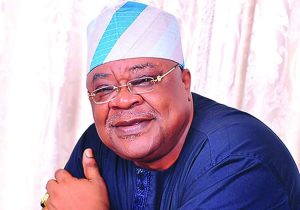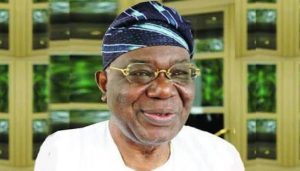
Chad’s longest serving President, Idriss Deby was reported dead in the wee hours of 19 April 2021. An army spokesman said he died while commanding troops on the frontline of a fight against Northern rebels. The news of his death is coming just days after he was declared the winner of the country’s recent presidential election for a sixth term.
In the words of General Bermendao Agouna, he noted that President Idriss Deby “has just breathed his last, defending the sovereign nation on the battlefield”.
French President Emmanuel Macron was one of the first world leaders to comment on the President’s death. According to him, Chad had “lost a great soldier” and “brave friend” in Debby. He assured the country that France would stand by her.
The US also expressed her condolences over the death of the president but emphasised their support for, “peaceful transition of power” in accordance with the Chadian constitution.
Deby’s son, General Mahamat Kaka, who is 37 years old, has however been named the interim Head of State and will lead the National Council of Transition. The Military Council headed by Gen Kaka has already met to draw up a transitional charter. Gen. Agouna also announced a curfew and border closures, as well as the dissolution of the civilian government, and elected Parliament.
Before his death, Idriss Deby was very instrumental in the fight against Boko Haram. Last year, he led his men on an offensive to a stronghold of the Boko Haram sect, in the Goje-Chadian area of Sambisa forest. In the operation which lasted several hours, the Chadian soldiers cleared the insurgents off the area, while invading one of the largest arm stores owned by Boko Haram.
During his visit to Muhammadu Buhari last month, he assured the president that the protracted war against Boko Haram insurgents would soon come to an end. According to him, “Boko Haram is indeed an evil that has hampered the four countries of the Lake Chad Basin and it has done much harm to our populations. It would be remembered that since 2013/2014, the four countries put together resources to create the Multinational Joint Task Force.
“This Multinational Joint Task Force has had good results. Unfortunately, the resilience of Boko Haram and the Islamic State in the Lake Chad Basin has been unprecedented.”

Meanwhile, suspicions are beginning to mount regarding the death of the Chadian president. Some political analysts have said that it was a perfectly planned “insider coup” carried out by certain members of his cabinet who might have been displeased following his protracted years in office, which is further amplified by his recent win at the just concluded presidential elections.
The BBC reported that only 5 soldiers died in the confrontation, while about 200 rebels were killed, and over 350 arrested. Of the 5 army personnel that died, how was it so convenient that the president of a whole country was one of them? Ordinarily, before a president can be hit on a battle field, 300 soldiers including generals would have fallen.
The haste with which the constitution was abolished and the dissolution of parliament corroborates the suspicions. Others have also said that the placement of the late president’s son as head of state is only temporary as another deadly coup in no time may see him out of office.
Although one must not fail to respect Idriss Debby for his anti-jihadist struggle, leadership style, as well as his passion to lead from the front and not from behind, the former president had always been a centre of attraction. A good number of his critics had described him as a sit-tight leader who wanted to make a dynasty out of the government of Chad.
It is important to note that Deby over the years had survived numerous armed rebellions, having orchestrated one himself when his Zaghawa dominated-rebel forces overthrew the then-President Hissene Habre, who was later convicted of human rights abuses at an international tribunal in Senegal.
Debby managed to stay in power, oftentimes deploying the help of French allies, until this latest insurgency led by the rebel group, Front for Change and Concord (FACT), who were also disputing his long reign in office.
The last straw that broke the carmel’s back was when the late president announced his bid for a sixth term. Even so, a new constitution under Deby’s government in 2018 had approved a six-year presidential term which would have seen the immediate past president stay in power until 2033, when he will be at least 80.
Deby’s opponents had said that the constitution, which eliminates the post of prime minister and creates a fully presidential system, is aimed at installing a de facto monarchy in Chad. His reelection for a sixth term on 18 April 2021 with 79 per cent, would have made him one of Africa’s longest-serving leaders.
The latest assault came last weekend, few days after the presidential polls. FACT has already rejected the military’s transition plan and said they would press on with their offensive on the capital. According to a statement by the group, “Chad is not a monarchy. There can be no dynastic devolution of power in our country.” Going by Chad’s constitution, the speaker ought to assume office as the head of government, not his son or the military.
Read Also: 10 Notable Deaths that Made Headlines in 2020
While pushing for a return to civilian rule, pundits have raised concerns as to how the happenings in Chad might affect Nigeria that is battling with both insurgents, bandits and rebel groups. As Human Rights Watch noted, “The potentially explosive consequences of President Deby’s death cannot be underestimated — both for the future of Chad and across the region”.
It was James Brynes who said “power intoxicates men. It is never voluntarily surrendered. It must be taken from them.” Iddris Deby’s long stay in power saw him in a protracted war with rebels. The rebels that eventually killed him understood Brynes words that power is never voluntarily surrendered; it must be snatched by force. ”
It is on this note that one can say that in spite of his extraordinary leadership qualities, Deby was a product of his own mechanisation, having orchestrated a rebellious coup that saw him to the office of president till his last days.
His death will tell on Nigeria’s war against Boko Haram, but it is a lesson to all political leaders that power concentrated on one entity spells doom for the individual and any political institution. Unfortunately, his son, Gen. Kaka would have no option but to follow the same route of constant war with Northern rebels like his father, while warring as well with Boko Haram insurgents in the South.

